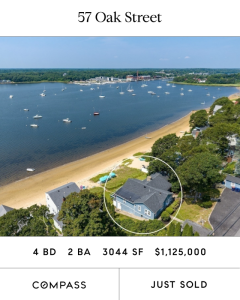Pilot restoration program under way in Dartmouth salt marsh
Story Location
United States
The Buzzards Bay Coalition is testing out a new salt marsh restoration technique at a property on Allens Neck Road to try and reverse habitat loss due to pollution and rising sea levels, according to a Nov. 6 statement from the coalition.
The group has selected Dartmouth Natural Resources Trust’s Ocean View Farm property on Allens Pond for the pilot program, and will be working with the land trust on the project.
Other partners include the Woodwell Climate Research Center, the Buzzards Bay National Estuary Program, Save The Bay in Rhode Island, the U.S. Geological Survey, and the Bristol County Mosquito Control Commission.
Marshes filter out pollution, provide habitat for wildlife, and protect homes from flooding. But increasing stress from pollution and sea level rise is leading to die back areas, where high tides are leaving standing water on the marsh that kills the plants, according to the coalition’s Dr. Rachel Jakuba.
The areas of impounded water can create mosquito breeding habitats that threaten public health as well.
“These die back areas threaten the marsh,” said coalition researcher Dr. Alice Besterman. “They expand over time, effectively eating the marsh from the inside out as these areas grow.”
The new technique involves “runnelling,” or digging shallow channels in the marsh to aid the natural tidal flow and drain impounded water.
“The idea is for the standing surface water to drain out of these die-back areas, which should allow for vegetation to begin growing back, restoring other ecosystem properties,” said Besterman.
According to the press release, the Allens Pond salt marsh has multiple die back areas. Pilot runnels were completed at Ocean View in late October.
“The salt marsh here at Ocean View Farm is home to several rare and endangered species,” said Linda Vanderveer, Land Manager for DNRT. “Seeing die back in the marsh is concerning, especially for the wildlife that depend on it for nesting, feeding, and shelter. We are excited to work with the Coalition and all of the project partners to try and restore the health of the marsh not only for the benefit of wildlife, but also so that others may benefit. It’s our hope that the runnelling technique will advance the science of salt marsh restoration on the Southcoast.”
The strategy has been employed in Rhode Island by project partner Save The Bay, but this marks only the second time it is being tried in Buzzards Bay, the release stated.
“We can never fully improve and preserve Buzzards Bay and its water quality, if we stand by as the Bay loses its salt marshes. These marsh habitats play an essential role in sustaining a healthy Bay ecosystem, and over the past two decades, we’ve seen dramatic and accelerating losses of marshlands,” said Mark Rasmussen, president of the Coalition.
The team will also be testing the new technique at a site in Fairhaven.
This project is supported by Southeast New England Program Watershed Grants, which are funded by the US Environmental Protection Agency and Restore America’s Estuaries. For more on the watershed grants, visit www.snepgrants.org.


























